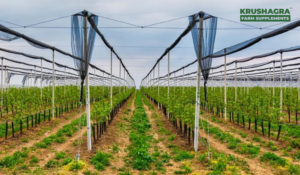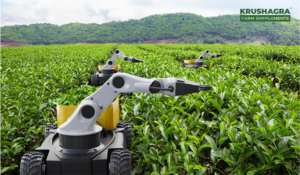Introduction:
In the dynamic landscape of agriculture, the debate between biofertilizers and chemical fertilizers has gained prominence, with a growing emphasis on sustainable practices. This blog aims to dissect the myriad ways in which biofertilizers prove to be more beneficial than their chemical counterparts, specifically for farmers. From economic advantages to environmental stewardship, we’ll explore the comprehensive benefits that make biofertilizers an attractive and sustainable choice for those who till the land.
Understanding the Basics:
Before delving into the advantages, it’s essential to grasp the fundamental differences between biofertilizers and chemical fertilizers. Biofertilizers are organic materials containing living microorganisms that enhance soil fertility, while chemical fertilizers are synthetic compounds designed to provide specific nutrients to plants. The distinction in composition sets the stage for a range of benefits that favor biofertilizers, particularly from the farmer’s perspective.
Economic Advantages:
Long-Term Cost-Effectiveness:
While the initial investment in biofertilizers might seem comparable to chemical fertilizers, the long-term economic benefits tip the scale in favor of bio-based alternatives. Biofertilizers contribute to improved soil health, reducing the need for additional inputs and minimizing the risk of nutrient imbalances. This inherent resilience translates into cost savings for farmers, making biofertilizers a financially prudent choice over the farming seasons.
Improved Crop Yields:
Biofertilizers play a pivotal role in enhancing overall crop yields. By fostering nutrient absorption and promoting optimal soil conditions, these organic fertilizers contribute to healthier and more robust plants. The result is not only increased productivity but also improved crop quality, translating into higher market value for the farmer’s produce.
Reduced Dependency on External Inputs:
Chemical fertilizers often necessitate additional inputs, such as pesticides and herbicides, to counteract their potential negative impacts on soil health. In contrast, biofertilizers work in harmony with the natural environment, reducing the need for external inputs. This inherent synergy simplifies the farming process, minimizing associated costs for farmers.
Soil Health and Fertility:
Microbial Enrichment:
Biofertilizers, brimming with beneficial microorganisms, enrich the soil microbiome. These microbes establish symbiotic relationships with plants, enhancing nutrient absorption and improving soil structure. This microbial enrichment contributes to long-term soil health, providing a fertile ground for sustainable agriculture.
Enhanced Soil Structure:
The organic matter introduced by biofertilizers enhances soil structure, promoting better water retention and aeration. This improvement in soil structure creates an environment where plant roots can thrive, ensuring efficient nutrient uptake. Farmers benefit from enhanced soil fertility and reduced erosion risks, safeguarding the long-term productivity of their land.
Environmental Stewardship:
Mitigation of Environmental Impact:
Chemical fertilizers are often associated with adverse environmental effects, such as nutrient runoff leading to water pollution. Biofertilizers, derived from natural sources, contribute to a more eco-friendly farming approach. Their minimal environmental impact aligns with the growing global emphasis on sustainable agricultural practices, positioning farmers as stewards of the land.
Biodiversity Conservation:
The use of biofertilizers helps preserve beneficial soil organisms, fostering biodiversity within the agricultural ecosystem. This preservation contributes to a more balanced and diverse environment, enhancing the overall resilience of the farming landscape. Farmers, in turn, become contributors to the conservation of biodiversity, promoting a harmonious coexistence with nature.
Adaptability and Versatility:
Versatility in Crop Cultivation :
Biofertilizers exhibit versatility in crop cultivation, adapting to various types of plants and farming systems. This adaptability allows farmers to diversify their crops without the need for constant adjustments to fertilization practices. The flexibility offered by biofertilizers aligns with the changing demands of agricultural markets, providing farmers with a dynamic and responsive solution.
Reduced Environmental Footprint:
The production and use of chemical fertilizers contribute significantly to carbon emissions. In contrast, the manufacturing process of biofertilizers tends to be more energy-efficient and environmentally friendly. By choosing biofertilizers, farmers actively reduce their environmental footprint, contributing to a more sustainable and climate-resilient agricultural sector.
Sustainable Farming Practices:
Empowering Farmers with Knowledge:
The adoption of biofertilizers necessitates a deeper understanding of soil biology and ecological systems. This knowledge transfer empowers farmers, enabling them to make informed decisions about their farming practices. As farmers become more attuned to the intricacies of their land, they contribute to a broader movement towards sustainable and knowledge-intensive agriculture.
Fostering Sustainable Agricultural Communities
The use of biofertilizers fosters a sense of community among farmers embracing sustainable practices. Knowledge-sharing becomes integral as farmers exchange insights and experiences related to biofertilizer adoption. This collaborative approach not only enhances individual farm outcomes but also contributes to the development of sustainable agricultural communities.
Conclusion:
In the ongoing narrative of sustainable agriculture, biofertilizers emerge as champions for farmers seeking economic viability, soil health, and environmental stewardship. The multifaceted advantages, ranging from long-term cost-effectiveness and improved crop yields to environmental conservation and knowledge empowerment, position biofertilizers as not just an alternative but a transformative solution for modern farming. As farmers tread the path of sustainability, biofertilizers stand as beacons, lighting the way towards a resilient, productive, and environmentally conscious agricultural future.






